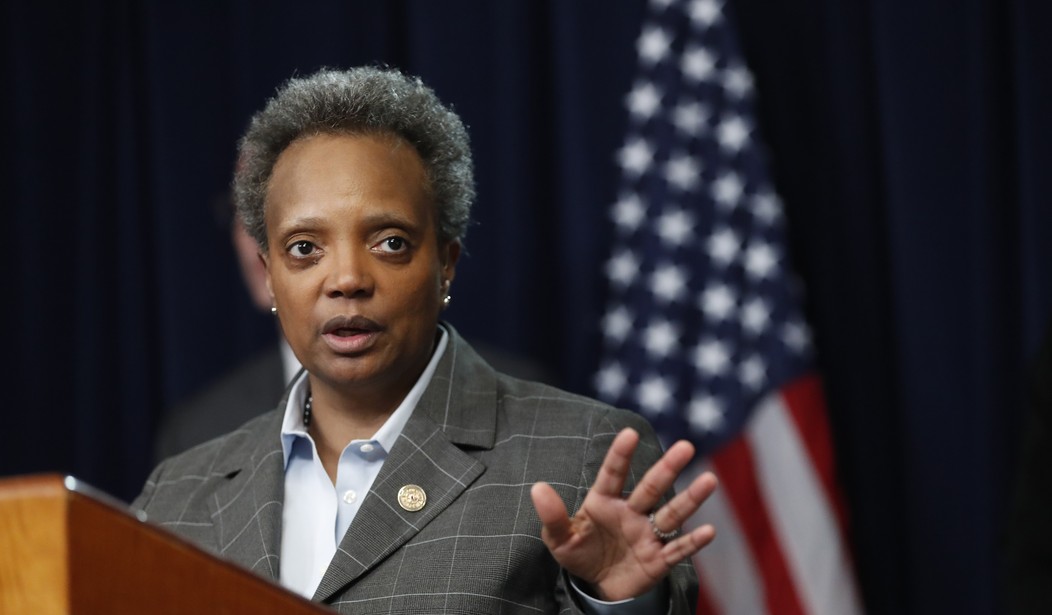It may be well past time for Chicago Mayor Lori Lightfoot to undergo a mental health evaluation. As a result of numerous bizarre statements and actions, such as only granting interviews to reporters of color, it appears she needs help.
In one of her moments of relative lucidity however, Lightfoot made an important revelation. In an otherwise incoherent presser where she declared racism against people of color a public health crisis, Lightfoot claimed that her “parents, like so many others of their generation and other generations were indoctrinated to believe that they could never, ever be able to reach for and accomplish their dreams.” Truer words have never been spoken, but Lightfoot and her allies are perpetuating this belief.
In the same breath, Lightfoot and others of her ilk decry the hopelessness that some black youths feel while simultaneously fueling this angst with baseless claims of systemic racism and ubiquitous white supremacy. Without a shred of support for these claims, besides the trite rehashing of disparities, leaders like Lightfoot instruct black people to be angry and despondent.
Indeed, it is a fool’s errand to attempt to climb the ladder of success if you are bound to fail. It is only logical not even to try. These race myths are akin to an intellectual bear trap for black people from which there appear only two avenues of escape.
Recommended
One way is a life in the streets. The conventional wisdom is that this escape hatch ends in death or prison—perhaps, both. The other is, as I learned as a black youth, to “play the white man’s game.”
This second escape method meant to take full advantage of the system—largely meaning government system—in any way it may benefit you, even if morally wrong. Think, for example, of the widespread fraud of the physical food stamps age. I recall that one could earn as much as 50 cents on the food stamp dollar back then.
By exaggerating, or outright falsifying, black victimization, leaders like Lightfoot provoke mediocrity which, in turn, fuels perceptions of inferiority from within and outside the black community. They say it is OK not to succeed. Indeed, you cannot and so we do not.
Fortunately, there is a third avenue of escape. We need leaders, especially black leaders, to be honest. Not just—or even principally—political leaders, but leaders within the black community like pastors, grandmothers, and sports coaches to dispel the myth that black people are hopeless victims.
We must offer hope and guidance, an inspiring vision for the future, and demand excellence from our people. Mayor Lightfoot and many other black people were able to achieve positions of immense power, influence, and prestige by committing themselves to excellence, being determined, having goals and striving for them, and, usually, by coming from a background of strong family and community cohesion. We can do all of this and, as a new study from the Douglass Leadership Institute suggests, we aren’t doing half bad on the third measure.
Let me start. In these United States of America, we black people, and any people, can achieve anything we set our minds to. Or, to borrow and revive a phrase that today feels like it originated in another century, “Yes, we can!”

























Join the conversation as a VIP Member